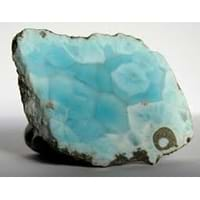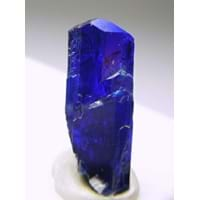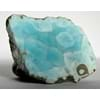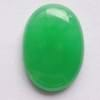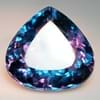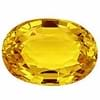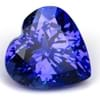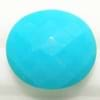Larimar Vs Linarite
Origin
Not Available, blue
Linarite, from La Carolina District, Linares, Jaén, Andalusia, Spain, the type locality . Picture width 1.5 mm
Streak
Not Available
Blue
For which Rashi?
Pisces
Not Available
Planet
Neptune
Not Available
Element of Planets
Not Available
Not Available
Energy
Receptive
Not Available
Finger
Not Available
Not Available
Ring Metal
Not Available
Not Available
Deities
Gia
Not Available
Not to wear with
Not Available
Not Available
Powers
Healing
Not Available
Planetary
Not Available
Not Available
Talisman
All
Not Available
Tenacity
Not Available
Not Available
Solubility
Not Available
Not Available
Durability
Not Available
Not Available
Specific Gravity
2.74-2.90
5.35
Fracture
Not Available
Conchoidal, ConchoidalAnthony et al, Handbook of mineralogy (2001), Brittle
Cleavage
Not Available
Perfect on {100}, imperfect on {001}
Chemical Composition
Ca 2NaHSi 3O 9Ulrich Henn and Claudio C.
PbCu(SO 4)(OH) 2Michael OâDonoghue , Gems, Sixth Edition (2006)
Luster
Not Available
Sub-Adamantine, Vitreous
Pleochroism
Not Available
X = pale blue; Y = blue; Z = Prussian blue
Dispersion
Not Available
Not Available
Transparency
Gemmological Tables (2004)
Transparent
Refractive Index
1.595-1.645
1.809-1.859
Optic Character
Not Available
Not Available
Crystal System
monoclinic
monoclinic
Birefringence
0.032-0.038
0.050
Clarity
Gemmological Tables (2004)
Transparent
Neurological
Not Available
Not Available
Cardiovascular
Not Available
Not Available
Respiratory
Not Available
Not Available
Reproductive
Not Available
Not Available
Digestive
Not Available
Not Available
Psychology
Not Available
Not Available
Healing
Not Available
Not Available
Qualities Associated
Not Available
Not Available
Larimar Vs Linarite Fracture
Fracture is an important parameter when you compare Larimar and Linarite Physical Properties. It is necessary to understand the significance of these properties, before you compare Larimar Vs Linarite fracture. Whenever a gemstone chip breaks, it leaves a characteristic line along its breakage. Such lines are known as fracture and are used to identify the gemstones in their initial stages of production when they are in the form of rough minerals. Fracture is usually described with the terms “fibrous” and “splintery” to denote a fracture that usually leaves elongated and sharp edges. Linarite fracture is Conchoidal, ConchoidalAnthony et al, Handbook of mineralogy (2001) and Brittle.
Larimar Vs Linarite Luster
A primary knowledge about Larimar vs Linarite luster is useful in apparent identifications of these gemstones. Luster is the measure of light that gets reflected when incident on a finished cut gemstone. There are two major types of lusters: Silky and Adamantine. Since luster varies between two crystals of even the same gemstone, luster is limited to basic identification criteria. Linarite, on other hand, exhibits Sub-Adamantine and Vitreous luster.
